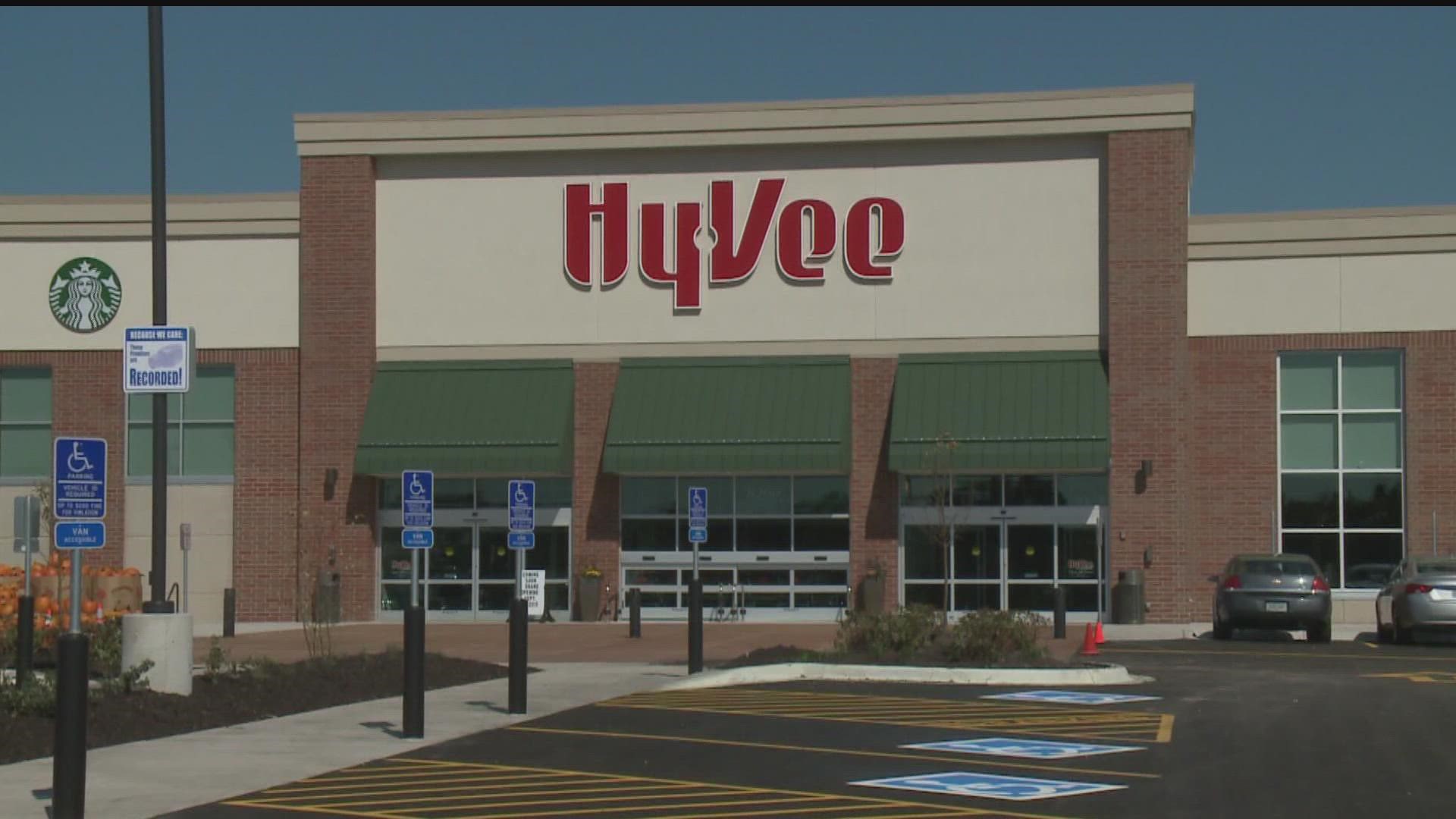MINNEAPOLIS — Over the last eight years Iowa-based grocery store chain Hy-Vee has been buying land around the metro with plans to build new stores. Now, citing changes in the shopping patterns of customers, they've decided to sell five of these sites.
In a statement from company officials Hy-Vee said sites in Farmington, Chaska, Blaine, West St. Paul and land bought for a second Maple Grove store "are not properly situated" for a 150,000 square foot or larger store Hy-Vee would now want to build.
The affected sites are:
- Farmington in the Vermillion River Crossings development off Highway 50
- Chaska west of Highway 212 in the Chaska Creek Business Center
- Blaine across from Blaine High School
- West St. Paul on the YMCA Thompson Avenue property
- Maple Grove at a second location, at Highway 610 and Maple Grove Parkway North
The company said future projects need to have enough space to launch new departments, as well as operate Hy-Vee's Aisles Online hubs, which require more footage for on-site grocery pickup and storage space.
“A lot has changed since we first acquired these locations,” said Jeremy Gosch, president and chief operating officer at Hy-Vee. “As customers’ shopping patterns have changed over the pandemic, we’ve determined that there is a need for larger store formats that these current sites simply are not able to accommodate.”
Hy-Vee plans to continue to operate their 13 stores currently in the Twin Cities, and maintain sponsorships of the Vikings, Wild, Timberwolves and Lynx.
No timeline has been announced for the sale of these properties, but Hy-Vee has recently announced the construction of new large format stores in Indianapolis, Louisville and Nashville.
Meanwhile, consumer experts agree the pandemic has changed the way we shop for groceries. Soumya Sen, associate professor of Information and Decision Sciences at the Carlson School of Management, says people are growing more comfortable with online options.
"Last year, at least half of the U.S. households have tried out online grocery purchase at least once and online grocery sales was about $8 billion per month last year," Sen said.
Akshay Rao, the General Mills chair of marketing at Carlson, says staffing shortages have also contributed to the change in grocery shopping trends.
"You go to any retail establishment today and you will notice a marked reduction in the availability of sales people, or just somebody to help you find stuff that you're looking for, whether you're at a department store like Macy's or at a grocery store like Hy-Vee," Rao said.
According to Axios, Target is currently the number one grocer in the Twin Cities, followed by Walmart.
"It took decades before people like you and me were willing to go into a department store and put their toilet paper in the same cart as the Belgian endive," Rao said, "so it doesn't surprise me that over time, Target's success with groceries has increased and that is driven in-part by quality, in-part by price, and in-part the convenience of one-stop shopping."
Watch the latest local news from the Twin Cities in our YouTube playlist:

